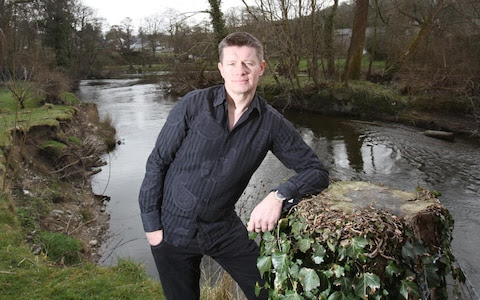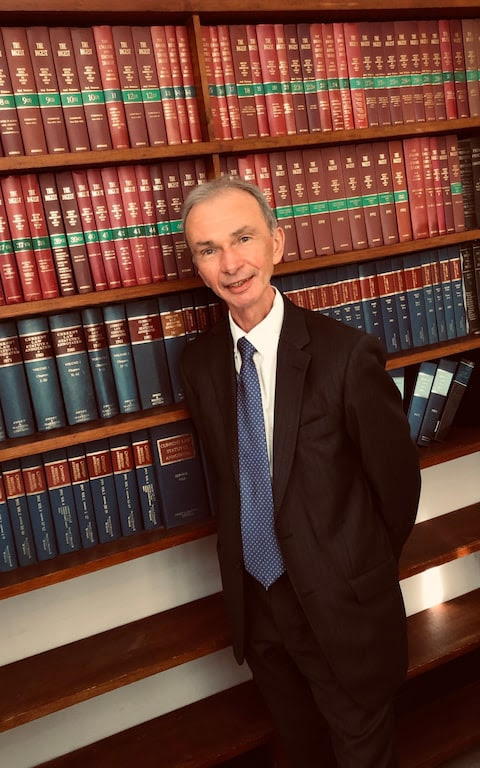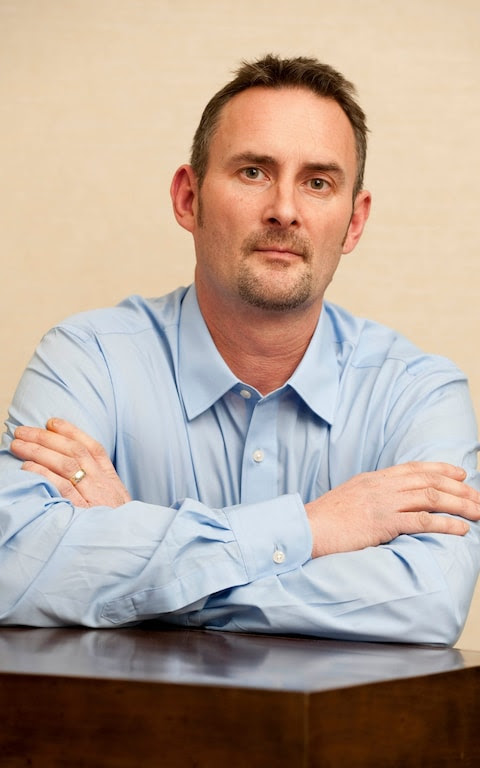Telegraph
University lecturer has ‘no legal right to be anti-PC’ after claims he was ‘hounded out’ by left-wing colleagues
 Dr Andrew Dunn was, until recently, a senior lecturer in social policy at Lincoln University
Dr Andrew Dunn was, until recently, a senior lecturer in social policy at Lincoln University
- Camilla Turner, education editor
12 JANUARY 2019 • 9:00PM
Auniversity lecturer does not have the right to be anti-PC, an employment judge has ruled, after he claimed that left-wing colleagues “hounded” him out.
Dr Andrew Dunn was, until recently, a senior lecturer in social policy at Lincoln University. But after a series of spats with fellow academics he was repeatedly disciplined and eventually dismissed from his post.
As part of a claim for unfair dismissal, he told an employment tribunal how the university’s “discrimination” against him started in early 2015 when his career was “really taking off”.
Dr Dunn, who is the branch chairman for Ukip in Lincoln and stood as a candidate for the party in last year’s council elections, published a book titled Rethinking Unemployment and the Work Ethic.
In his book he explains that while benefit claimants generally want jobs, many remain on benefits because they are “too choosy” in the jobs they are willing to do.
He says that these arguments are unfashionable and so are rarely acknowledged by left-leaning social policy academics, which leads to government policies based on a flawed understanding of the issue.
Dr Dunn, 45, set up a Twitter account in January 2015 to promote his new book but was attacked when he posted an article summarising his academic research, with some labelling him a “Tory bigot”.

Andrew Dunn meets former Ukip leader Nigel Farage at the Ukip spring conference in Bolton 2017
But rather than jump to his defence, or even just ignore the online abuse he faced, he was astonished to see his “left-wing” colleaguesjoin in.
Sue Bond-Taylor, another Lincoln University lecturer in social policy, contacted the abuser on Twitter and urged him not to “discount the whole team off the back of the work of one member of staff”.
Meanwhile Dr Dunn felt that Liam McCann, now the acting deputy head of Lincoln’s school of social and political sciences, appeared to “sneer” at him and question why his work was worthy of funding.
“Insults, swearing and rudeness are commonplace on Twitter, but what happened involving [my colleagues] shocked me as I have never seen anyone behave in such a rude and disrespectful way towards a word colleague in view of the public on a social media site,” Dr Dunn told the tribunal.
He complained about the incident to his line manager and the university launched an inquiry which found that Dr Dunn, along with his colleagues, had all breached the institution’s “respect” policies.
He said that by finding him equally at fault with his colleagues “the inescapable conclusion” is that he had been discriminated against due to his “political philosophical beliefs”.
Over the next two years he had several other disputes over social policy with academic colleagues and students, he was eventually dismissed in August 2017.
Dr Dunn’s claim that he was discriminated against for his anti-PC beliefs was thrown out by the Judge Blackwell last month, who ruled that: “The belief that the tendency to favour what is palatable in social policy discussions over the truth (in colloquial terms this tendency is known as political correctness) is not a philosophical belief that has the protection of section 10 of the Equality Act 2010.”
A Lincoln University spokesman said: “The claims by a former employee made in this case were dismissed by a tribunal panel. We welcome diversity of opinion and debate on our campus while treating staff, students and visitors with dignity and respect.”
Telegraph
Teaching children boys have periods too is not education, it’s ‘mythinformation’
17 DECEMBER 2018 • 6:30PM
 Children and their identity has become a hot topic in the classroom CREDIT: NA/GETTY
Children and their identity has become a hot topic in the classroom CREDIT: NA/GETTY
That’s it: my daughter’s getting home-schooled. It’s either that or risk having a 7 year-old earnestly assure me at pick-up time that “boys have periods too, you know.” And now that Brighton & Hove City Council have officially approved plans to teach children that “all genders” can menstruate, it won’t be long until British kids are being taught that girls have testes, Paris is the capital of Romania – and 2 + 2 = 5.
It’s a victory for transgender rights campaigners, but also for Dr Seuss, who may as well be running the show for all the sense our green-eggs-and-ham world now makes. And don’t get me wrong, I’m all for menstruation being inclusive (you can have it chaps, be my guest) but there’s a teensy-weensy problem here called ‘biology’. And I know all that’s semantics and we’re living in an emotion-governed universe where even the leader of the free world shows a total disdain for facts, but they sort of do matter. And schools are the one place you’d hope would understand that.
When I wrote about the hijacking of childhood by the trans lobby last month – and lamented the knee-jerk reactions of an education system too scared to question its agenda – the reader response was the greatest and most impassioned I’ve had in thirteen years at this paper. The letters and emails came from men and women young and old, gay, straight and trans – and almost all zoomed in on the following quote from Dr Godfrey-Faussett.

Are we encouraging our children to question biological truths? CREDIT: NA/GETTY
Reacting to the revelation that in one British school where a whopping 17 pupils were changing gender almost all had turned out to be autistic, the British Chartered Psychologist described what was going on as “state-sanctioned child abuse.”
It’s worth noting that not one of the Telegraph readers who wrote to me dismissed this as hyperbole. Not even those who admitted to having spent “a lifetime trapped in the wrong body” and were “grateful” for the medical advances that meant people no longer had to. Because much as the trans lobby likes to muddy the argument by declaring us all ‘transphobic’, that simply isn’t true.
Let people decide what’s right for them when they’re adults, was the general consensus. And I’d hope most fair-minded people would understand that the whole different strokes conversation does need to be had with kids. Certainly we’d all agree with the Royal College of Paediatricians and Child Health’s statement that “it’s helpful to children to learn the meaning of terms such as lesbian, gay and bisexual.” But at the right time.
Every parent knows how crucial timing is. And if anyone tries to tell me that primary school children are of sound and rational mind I shall point them in the direction of my daughter, who currently identifies so vehemently with a superheroine ladybird named Ladybug that she’d have the vile synthentic, highly flammable red and black-spotted onesie she refuses to take off surgically adhered to her body given half a chance.
Will she still be wearing that onesie next month though? Next week would be pushing it. But we’re not allowed to talk about fads. Fads are belittling to these fiercely progressive little humans whose innate, superior knowledge can’t be questioned.

Anna Friel playing the mother of a transgender child in Butterfly which was on earlier this yearCREDIT: ITV/ITV
For Dr Godfrey-Faussett, who has worked extensively with children in schools and knows how forcibly the trans narrative is being pushed (from the reading of books like Michael Hall’s ‘Red: A Crayon’s Story’, about a blue crayon mistakenly labelled red who is suffering an identity crisis, and Sara Savage’s Are You A Boy Or Are You A Girl to primary school children to the instant dismissal of teachers accidentally using the ‘wrong’ pronoun with a child suffering from gender dysphoria) it’s that lack of any questioning that’s most dangerous.
Teachers certainly aren’t allowed to question, since that’s seen as making a judgment, and in her psychological and counselling field, this stance has been taken still further: “A lot of the accredited bodies are recommendations to us as mental health practitioners. So if an individual comes to us with questions about their sexuality or gender, we are strongly advised to affirm it as opposed to help them question or explore what may be underlying it. This in my opinion challenges what I see as at the heart of therapy.”
Children, on the other hand, are being encouraged to question everything, from their very essence to their physical shape and, now, even the workings of their bodies. But telling children that boys can menstruate is not education, it’s mythinformation, pure and simple.
15 DECEMBER 2018 • 5:58PM
 The Advertising Standards Agency has announced it will ban adverts that contain gender stereotypes. CREDIT: GRAPHICA ARTIS/HULTON ARCHIVE
The Advertising Standards Agency has announced it will ban adverts that contain gender stereotypes. CREDIT: GRAPHICA ARTIS/HULTON ARCHIVE
It hardly matters how the country votes, it always seems to be governed by the Left. Diversity audits, the regulatory state, endless restrictions on choice and speech, yes some of this is the result of political decisions, made by Tory MPs desperate not to be thought Right-wing by their smart London friends. But more often it emerges out of that tangled web of quangos, agencies, authorities, committees, and “co-regulators”, run by an unaccountable Blairite technocracy that is as addicted to social engineering as it is divorced from the mainstream of opinion and impossible to replace.
Thus last week we discover that the advertising regulator will ban adverts containing “gender stereotypes that are likely to cause harm, or serious or widespread offence”. I have some sympathy with those who dislike advertising that portrays men or women in outdated roles – mothers doing all the housework, or fathers being poor parents. But harmful? It assumes that viewers – gullible, malleable and weak – make life choices based on the partial narrative of a 30 second advert. And there is already a mechanism for expressing “widespread offence”: not buying the products being marketed, or complaining to the company itself.
But the regulators, the Committee of Advertising Practice which writes the rules and the Advertising Standards Authority which polices them, conform to O’Sullivan’s law: any organisation that is not explicitly Right-wing will become Left-wing over time. Most people accept that these bodies have a role in stopping advertising which wilfully misleads or hoodwinks the public, or in ensuring that inappropriate content is not broadcast to children. But should they be acting like philosopher-kings, determining what is good or bad for adults?
The regulation of corporate speech has become a veiled attack on free speech itself. Ludicrously, an advert for Costa Coffee was banned for urging customers to buy a bacon roll rather than an avocado because it “discouraged the selection of avocados”, and the coffee chain was told not to in future “condone or encourage poor nutritional habits”, a recipe for misery if there ever was one. An advert for Ford was banned, meanwhile, for apparently encouraging dangerous motoring when it contrasted the aspiration and freedom of driving a Mustang with life’s quotidian frustrations, set against a reading of Dylan Thomas’s poem Do Not Go Gentle into that Good Night.
There is a unifying worldview behind these disparate examples: that people do not have the wit or the ability to make up their own minds. We are feeble victims who need to be prevented from making bad decisions and protected from irresponsible corporate power. We are, in effect, children. And if we look back in a decade or so and wonder how a nation of sophisticated consumers ended up with a far-Left Corbyn government, part of the blame should be shouldered by the irresponsible bodies that implicitly endorsed his own infantilising agenda. Rage, rage against the dying of the light, and the technocrats who extinguished freedom.
Note: While there will be difference sin the learning ability involved in learning to read , the idea that there is a specific mental disorder which makes reading abnormally difficult to going on impossible to read has always been suspect because of the ability of some schools, including those in poor areas , to achieve nigh on 100% of their pupils reading fluently. RH
Telegraph
Dyslexia no longer being diagnosed by councils who called the disorder ‘scientifically questionable’
Save
 Roughly 10 to 15 per cent of children are thought to be dyslexic CREDIT: IAN HOOTON
Roughly 10 to 15 per cent of children are thought to be dyslexic CREDIT: IAN HOOTON
11 JANUARY 2019 • 11:00PM
Dyslexia is no longer being diagnosed by councils who claimed the disorder was “scientifically questionable”.
Children across Warwickshire and Staffordshire now have little or not access to taxpayer-funded assessments, as officials “embraced a policy of not differentiating” between dyslexics and others who simply struggle to read.
However, experts have criticised the argument as merely a smokescreen for cuts.
It follows criticism directed at both local authorities in the House of Lords last October for a co-authored document arguing that “a diagnosis of dyslexia does not provide any additional information that is useful for addressing the difficulties nor does it predict the rate of progress”.
The guidance has since been withdrawn pending the outcome of a consultation.
However, The Daily Telegraph has spoken to experts and support groups in both counties who described the help available to dyslexic children as the “worst in 30 years”.
A major programme of in-school support in Staffordshire was cut last September, while parents in Warwickshire have reported being told by schools that dyslexia is no longer recognised.
It comes as Birmingham City Council, England’s largest local authority, said it was reviewing its special educational needs policy after two of its psychologists attended a conference at Durham University in September organised by scientists who questions the existence of dyslexia.
Meanwhile the British Dyslexia Association last night said it was “deeply concerned” by reports that at least 80 local authorities are planning to send representatives to a major conference at University College London this month staged by the same group.
Senior educational psychologists from both Warwickshire and Staffordshire county councils are billed as keynote speakers at the event.
Helen Boden, the BDA’s chief executive, said: “If you don’t test for dyslexia you’re effectively shutting the door for people applying for support.
“We risk losing a huge amount of talent – people’s lives are being messed about.”
“There is a major issue around costs.”
Both Warwickshire and Staffordshire county council’s last night insisted that they “do recognise dyslexia”.
However, a spokesman for Warwickshire said their approach “encourages teachers to identify and support all literacy difficulties as soon as a potential issue is identified rather than wait for a formal dyslexia diagnosis”, while a cabinet member for Staffordshire said: “The early support for all children with literacy difficulties does not discriminate by underlying cause.”
The comments follow the withdrawal of council-funded in-school special needs support in Staffordshire by services contractor Entrust, which is joint-owned by the council and Capita, leaving schools to use their own budgets to buy in specialist help.
The Daily Telegraph has seen an email from the company which said the decision had been made by local officials “due to financial pressures”.
Julie Cappleman-Morgan, co-founder of the Tamworth dyslexia support group Dig-iT, said: “Basically services have been decommissioned at a local level and people’s life chances have being massively hurt.”
Show more
Lesley Hill, who helps run the North Warwickshire and Coventry Dyslexia Association, said: “Availability is the worst it’s been here for 30 years.”
A diagnosis of dyslexia should allow council-funded support which could include extra literacy lessons, a laptop and specialist voice-recognition or text-reading software.
Last year Matt Hancock, the Health and Social Care Secretary, revealed he was dyslexic and that his career could have been “very different” had he not been given a spell-checker in school.
The 40-year-old later graduated with a first in Politics Philosophy and Economics from Oxford University.
However, Professor Julian Elliott, who is organising this month’s London conference, said: “If you’re testing for dyslexia, small numbers of kids get identified and prioritised but massive numbers with similar sorts of problems do not get helped.
“What a lot of services are trying to do are to find ways that would identify – rather than having a small number of children identified as dyslexic under very spurious criteria, they’re trying to find ways to identify all children who are struggling to read in local authorities.
“This could become a major move.”
Councillor Philip White, Cabinet Member, said: ” Staffordshire advocates early identification and evidence based intervention for all children experiencing literacy difficulties to ensure fair access to available resources and effective support.
“Children who do not make expected progress over time meet the BPS 1999 definition of dyslexia. This descriptor is accepted in Staffordshire.”
Meanwhile a Warwickshire County Council spokesman said: “We wish to state categorically that the council does recognise dyslexia along with many other special educational needs.
“The approach in Warwickshire encourages teachers to identify and support all literacy difficulties as soon as a potential issue is identified rather than wait for a formal dyslexia diagnosis.
“In this way pupils are supported at the earliest opportunity with appropriate support.”
Telegraph
Who’s the daddy? The truth about Britain’s paternity test problem
 Richard Mason, the co-founder of Moneysupermarket, who discovered three sons from his marriage were not his CREDIT: HUW EVANS
Richard Mason, the co-founder of Moneysupermarket, who discovered three sons from his marriage were not his CREDIT: HUW EVANS10 JANUARY 2019 • 7:00AM
When millionaire Richard Mason made the shock discovery he was not, in fact, the father of his three sons, he was quick to call lawyer Roger Terrell.
The farmer’s son has become a sought-after expert in the murky world of paternity fraud – and business is booming.
“Richard wasn’t in a very good place,” Terrell says of his client, who is the co-founder of the price comparison website Moneysupermarket.com. “Psychologically the impact of this is severe.”
Earlier this week Mason, 55, revealed his personal torment in a newspaper interview. He said that following a diagnosis of cystic fibrosis in 2016, he had been told most sufferers of the condition are infertile – and thus that it was extremely unlikely he would have been able to father his three sons, aged 23 and 19-year-old twins.
He confronted his ex-wife Kate, who eventually admitted she had engaged in an on-off affair with a colleague during their 20-year marriage, which ended in 2006.
Terrell represented Mason as he attempted to claw back a £4 million cash sum paid as part of his divorce settlement in 2008, while also pursuing his ex-wife for paternity fraud.

Richard Mason with his ex wife and the three sons he has discovered are not his CREDIT: KEVIN HOLT
Mrs Mason agreed at the end of November to settle matters with a payment of £250,000 – on the condition the biological father remained anonymous. Terrell believes the move may have been prompted by a desire to stop the identity being disclosed in court. In recent days Mason has suggested he will write a book about his ordeal and offer up a £5,000 reward to reveal the identity of the biological father of his sons.
Sensational it may seem but for Terrell, who established his solicitor’s firm in Peterborough in 1988, such stories are becoming routine work – albeit usually without such eye-watering sums at stake. He regularly receives enquiries from fathers as far and wide as Canada to New Zealand, as well as Britain: in total, the 64-year-old estimates he has handled more than 50 paternity fraud cases, 20 of which have gone to court.
“I’ve done these cases for senior partners in London legal firms, for doctors, for archaeologists, all sorts of sophisticated people,” he says. “Paternity fraud doesn’t discriminate.”
Certainly those in the business say such cases are far from refined to the sofas of trashy daytime television; this is a deceit that spans the class divide. Indeed until 1948 the Home Secretary was required to be present at the birth of a member of the Royal family, which Terrell says was to ensure the child was a genuine descendant of the monarch, and not an imposter being sneaked in.

Roger Terrell
Attempts to quantify the scale of Britain’s illicit fecundity are, as you might expect, vague. In 2016 a research project undertaken by scientists from KU Leuven University in Belgium suggested up to two per cent of British fathers may be victims of paternity fraud, adding that given a lack of hard evidence, prior scientific studies – some of which put that figure as high as 10 per cent – may have been overestimates.
Anecdotally, though, the numbers are on the rise. British testing firm DNA Clinics analysed 5,000 results selected randomly from between January 2014 and June 2016, and discovered 51 per cent of English men had been ruled out as being the paternal father of children they had been tested for a genetic link to.
This increase in cuckolded men discovering they have been deceived is, according to Terrell and other legal experts in the field, due to home DNA testing kits being “much more prevalent,” he explains. Now widely available online for under £100, it means we have more conclusive genetic evidence about where we came from than ever before.
“DNA testing is much more prevalent, much cheaper and that is why these cases will increase,” he says.
Prior to Richard Mason, Terrell’s most high profile case was a client called Richard Rodwell. In 2013, the then 46-year-old factory manager made headlines after being awarded £25,000 in damages against his former wife after DNA tests revealed their 20-year-old daughter and her 18-year-old brother were not his biological children. Following his 2005 divorce, Rodwell paid out £15,600 in maintenance for the children before finding out they were not his.
When they discovered the truth, they cut all ties with him. He spoke of suffering from depression in the fallout and feeling as if he had endured a bereavement; whatever money he had secured following the legal battle, he said, could never expunge the grief.
Another client, Andy Phillips from Telford, Shropshire, received a £19,000 out of court legal settlement after discovering he had for years been paying child maintenance to a son that was not his. He said at the time he would never be able to forgive his former partner for the hurt.
Having seen the impact of such cases at first-hand Terrell believes paternity fraud should be made a criminal offence, but admits “the police will not pursue criminal prosecutions”.
To add insult to injury, there is little legal assistance available to those who have been deceived attempting to claw back child maintenance. In 2015 an unidentified university lecturer known only as Mr X in court was awarded compensation after it was ruled he had been a victim of “clear deceit and fraud” at the hands of his ex-wife, a successful businesswoman, who tricked him into believing the baby she conceived through IVF at a clinic in Spain was his child.

Richard Rodwell who discovered his two children were fathered by another man CREDIT: DAVID CRUMP
But, because of legal precedent, the woman was not required to hand back the £60,000 in child maintenance she received after the couple split.
The close bonds forged raising a child mean other fathers simply cannot bring themselves to reveal the awful truth to their offspring.
Cheryl Grace, senior solicitor based at Stowe Family law in Leeds, currently has a client who has discovered his teenage daughter does not actually belong to him.
“He believed all the time she was his then his wife just turned round and said ‘she isn’t’,” Grace says.
Initially her client, whose marriage has since broken down, wanted to pursue a DNA test, but has since changed his mind.
“Now he has time to reflect he has realised he doesn’t want to risk ruining the relationship with his daughter,” she says, underlining that this really can happen to anyone.
“Human nature applies to us all,” she says. “It only takes a woman to get a bit tipsy at the Christmas party or be u


